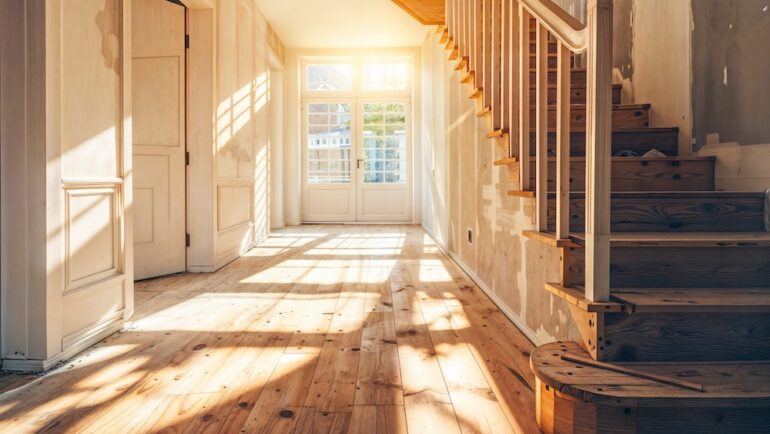They make it look so easy, those house-flipping shows where they take a wreck of a home, turn it into a dream house and then sell it for a big profit. Have you ever wondered if you missed an opportunity to flip a house? Let’s pull back the show business curtain and take a look.
Overstated drama
The first thing you need to remember is that house-flipping shows are entertainment. Their main goal is to boost ratings, sell advertising, and make a profit. The drama is pure theatrics to drive viewership. Smart house flippers expect problems in such homes and plan for those costs, beginning with the initial purchase price and continuing all the way through to the final sale.
Buying to flip a house
You must know how to pick the right house at the right price, usually around 70 percent of the going rate of comparable homes in the surrounding neighborhood. This will give you the wiggle room you need to renovate, sell, and make a profit. You also must control financing costs. Traditional mortgage lenders are reluctant to lend to such projects, so finding a private network of family and friends is a better route. It’s best to avoid so-called “hard money lenders” that charge stiff rates, perhaps 10 percent or more.
Construction costs
Most professional house flippers — not the movie-star-looking guys you see on TV — come from a construction background. Before they flip a house for the first time, they’ve had years of trade experience. They also have a network of other construction workers to call on for work at reduced rates. If you have little or no do-it-yourself skills and must hire out the work, your renovation costs will deeply cut your profits. With limited experience and skills, you’d be better off buying a house that only needs small to moderate renovation to dress it up for sale.
Selling costs
Professional flippers often do “for sale by owner” or have an agent who works with them on a discounted commission in exchange for a steady supply of such homes to sell. Other professional flippers are real estate agents. Without those advantages, you’ll pay a real estate commission and other closing costs.
Capital gains
Another item to consider is the tax implications of a flip. If you don’t live in the home, you’ll face potential capital gains taxes, yet another blow to the bottom line.
Related – Investment Property Repairs and Renovations: How They Affect Your Taxes


